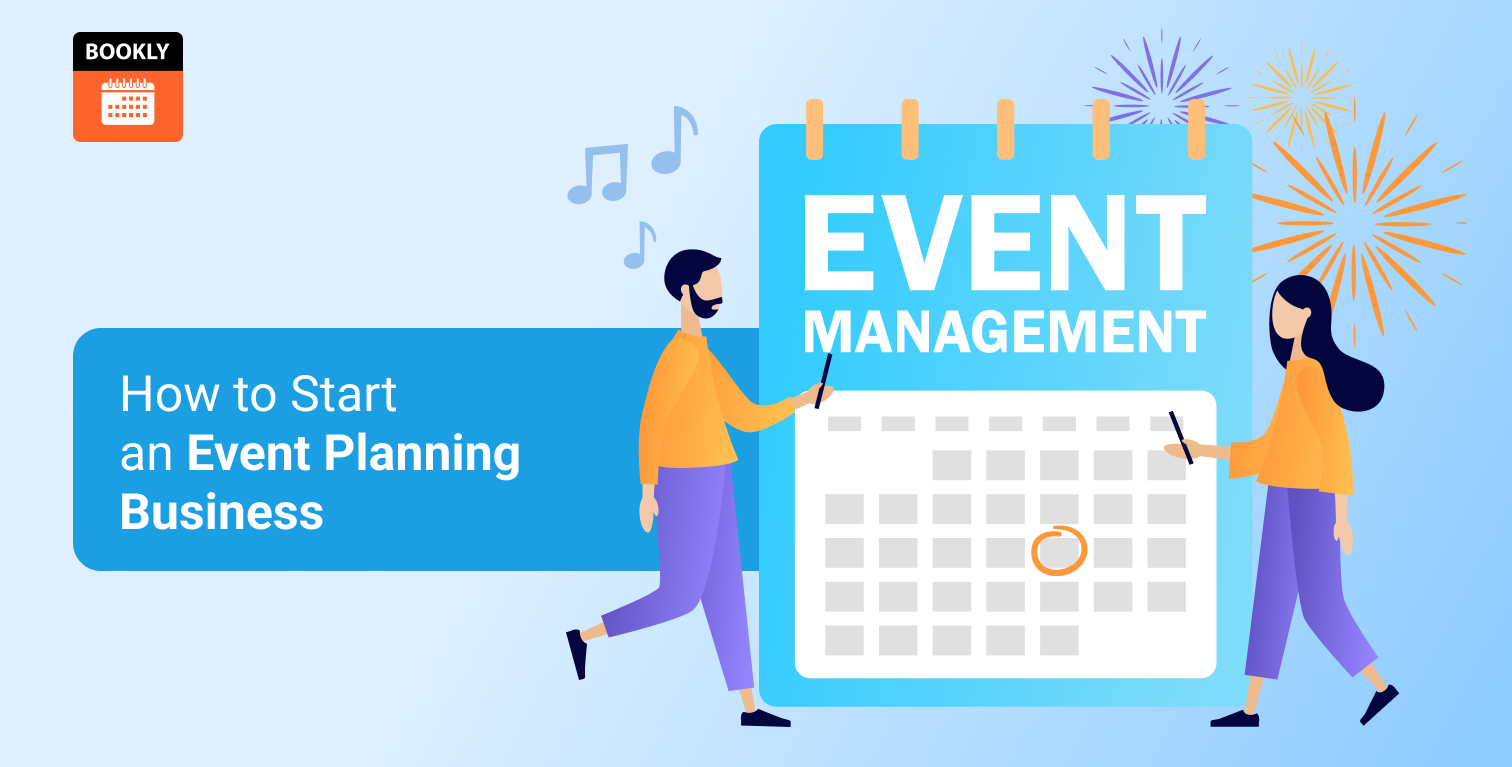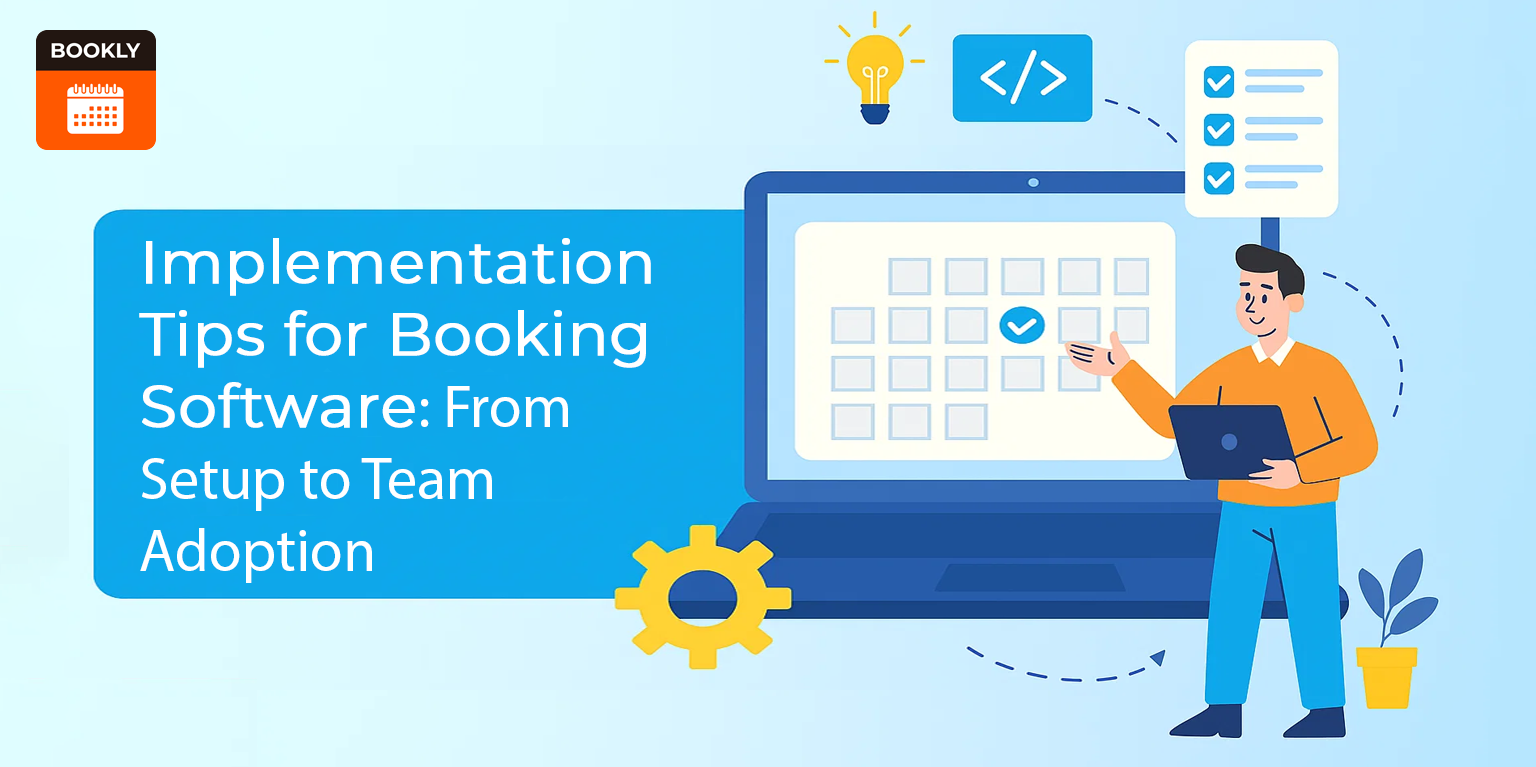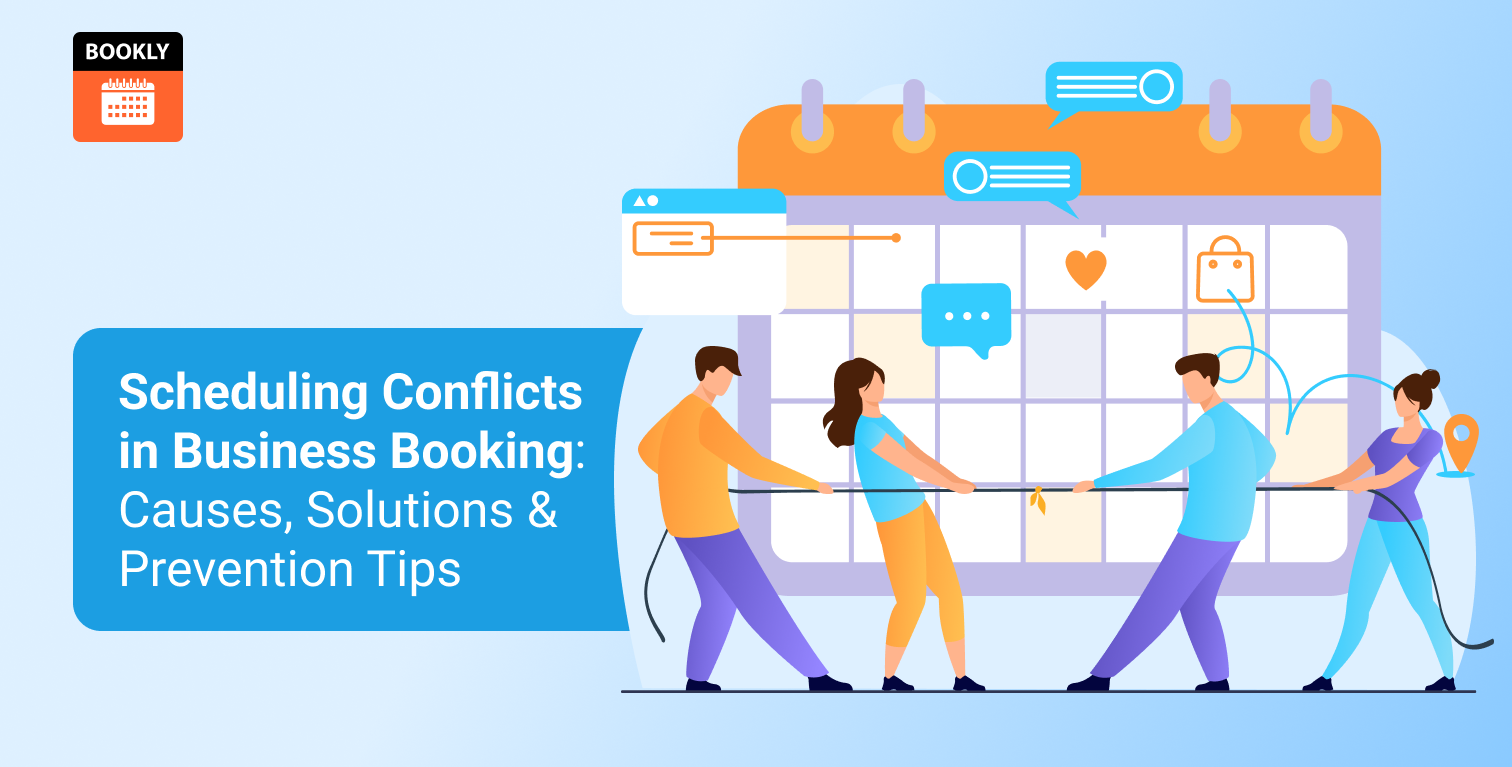
How to Start an Event Planning Business?
The event planning business provides steady work, as people often need help organizing gatherings. Weddings, corporate events, and private parties require careful planning, and many prefer to hire professionals. So running an event management business can be profitable, and it also allows for multiple income sources.
To start strong, focus on organization, budgeting, and client communication. A reliable system for tracking tasks, invoices, and bookings prevents mistakes. Software tools simplify these processes. For example, Bookly lets your clients schedule appointments online easily.
This guide walks you through the major steps on how to build an event planning business. Read on to learn how to find your niche, attract clients, and streamline your workflow with the right tools.
Why is event planning a profitable business?
The event planning industry shows real numbers that present a lucrative opportunity for entrepreneurs. The global market was valued at $736.8 billion in 2021 and is projected to reach $2.5 trillion by 2035. Let’s discuss what drives such growth.
High demand across various sectors ensures a steady stream of clients. Weddings, corporate events, and social gatherings occur year-round, so you get continuous event planning opportunities. Low startup costs make it accessible to start your own event management business. With minimal investment in essentials like a laptop, phone, and internet connection, you can manage clients and vendors effectively.
Scalability allows you to begin independently and expand by hiring staff or collaborating with freelancers as your client base grows. Multiple revenue streams enhance profitability. You can also earn from service fees, vendor commissions, and package deals, with opportunities to upsell additional services.
Defining your niche: Choosing the right market
Focusing on a niche helps set your services apart and attract the right clients. Instead of trying to plan every type of event, narrowing your focus helps you refine your skills and create a recognizable brand.
How to choose your niche in event planning?
IMAGE
- Identify event types that match your skills and interests
- Research market demand and analyze competitors
- Assess profitability and define your target audience
- Craft a unique selling proposition that highlights your strengths
So now, you can consider choosing from the common event management niches shown below.
-
- Weddings
- Corporate events
- Social events
- Nonprofit and charity events
- Conferences
- Virtual events
- Exhibitions
-
- Luxury and destination events
- Cultural and religious events
Choosing a niche makes marketing more effective and helps you connect with clients who value your expertise. When your services match a specific audience’s needs, you attract clients who trust your ability to bring their vision to life.
Setting up your online presence: Website and social media
People often judge a business by how it presents itself online, so maintaining a polished and professional image makes a big difference.
How to start event management business: Establish online presence
- Create a professional website
Your website should showcase your services, past events, and client testimonials. A portfolio with high-quality images helps visitors visualize your expertise.
- Use SEO and blogging
Optimizing your website with relevant keywords improves search rankings, making it easier for people to find your business. Posting content keeps your site active and attracts organic traffic.
- Choose social media platforms properly
Platforms like Instagram and Pinterest work well for sharing event photos and other visuals. LinkedIn, on the other hand, connects you with corporate clients.
Finding clients: Marketing strategies that work
Attracting clients is key to growing your event planning business. The right marketing approach increases your visibility and builds trust with potential customers. A combination of digital outreach and personal connections helps you reach the right audience and turn inquiries into bookings.
How to start event planning business marketing?
- Targeted ads. Running Facebook or Google Ads puts your services in front of your prospects. Customize your ads based on location, interests, and demographics to reach the right audience.
- Word-of-mouth referrals. Satisfied clients are your best promoters. Encouraging them to refer friends or colleagues by offering discounts or small incentives helps you grow through trusted recommendations.
- Vendor collaborations. Partnering with venues, caterers, and photographers allows you to cross-promote services. Also, strong industry relationships can lead to referrals.
- Content marketing. Sharing useful tips, planning guides, and event inspiration through blog posts and social media establishes you as an expert.
- Email marketing. Building an email list lets you stay connected with potential and past clients.
The importance of networking in the event industry
Networking means building professional relationships that lead to new opportunities and business growth. In event planning, connections with vendors, clients, and fellow planners are as valuable as marketing. Strong relationships keep you informed, bring referrals, and create a reliable support system.
A strong network offers many benefits. Trusted vendors may provide better pricing, exclusive deals, or priority scheduling. Industry peers can share insights, recommend clients, or collaborate on projects. Engaging with the community increases visibility and strengthens your reputation.
How to expand your professional network?
- Connect with vendors and suppliers
- Attend industry events
- Join local business groups
Tools and software for event planning efficiency
Managing an event planning business involves juggling schedules, budgets, and client communications. With the right software tools, you can stay organized, reduce errors, and handle more clients without feeling overwhelmed.
You can use different types of software to manage your workload.
- Event management
- Appointment scheduling
- Financial tracking
- Project management
- Marketing automation
- Client relationship management (CRM)
Bookly: The best WordPress appointment booking plugin for event planners
Keeping track of appointments manually can be time-consuming and frustrating. Bookly automates bookings, reduces back-and-forth communication, and frees up more time for event planning.
What does Bookly offer?
- 24/7 online booking. Your clients can schedule services anytime, so you won’t miss out on potential bookings due to limited business hours.
- Automated reminders. Email and SMS notifications keep your clients and staff informed. In such a way, Bookly reduces no-shows and last-minute cancellations.
- Customizable forms. You can tailor booking fields and design elements to align with your brand and collect essential client details.
- Payment processing. Bookly provides secure online payment options that make transactions seamless and improve cash flow management.
- Calendar syncing. You can integrate popular calendars to make sure your schedules stay organized.
How to add Bookly to your WordPress website
Adding an online booking system to your website makes scheduling effortless for both you and your clients. In just a few steps, you can set up automated appointment scheduling and start managing bookings more efficiently.
Installing Bookly in 4 simple steps
- Search for Bookly in the WordPress Plugin Directory. Go to your WordPress dashboard and look for Bookly under “Plugins”.
- Install and activate the plugin. Click “Install Now”, then activate the plugin.
- Configure settings and customize the booking form. You can adjust service details, availability, and design to match your business needs.
- Embed the booking form on your website. Add the form to relevant pages so your clients can schedule appointments right away.
Customizing
Bookly offers a range of customization options to meet your specific event planning needs.
Service customization
You can create different event packages to give your clients clear service options.
Branding adjustments
Customize the booking form’s colors, fonts, and layout to match your website’s design and create a consistent and professional look.
Custom fields
Add personalized booking fields to collect information, such as event type, guest count, etc.
Flexible scheduling
You can set custom appointment duration and define available time slots, so it’s easy to manage multiple bookings without conflicts.
Automating appointment scheduling
Bookly handles all appointment booking tasks so you can focus on planning and executing events.
- Automated notifications. Bookly sends email and SMS reminders to clients, reducing no-shows and last-minute cancellations.
- Calendar synchronization. The plugin updates schedules in real time by syncing with Google Calendar and other calendars.
- Payment automation. Clients can pay for services online smoothly and without manual invoicing.
- Third-party integrations. Bookly connects with various software tools, such as CRM systems and marketing platforms.
Growing your event planning business with WordPress and Bookly
Summing up, starting an event planning business requires organization, efficiency, and the right tools. This guide on how to start an event management business covered key steps, from choosing a niche to finding clients and streamlining operations with software tools.
Using the right strategies and tools builds a strong foundation for your business. Set up Bookly today to streamline scheduling, improve client management, and grow your event planning company.









